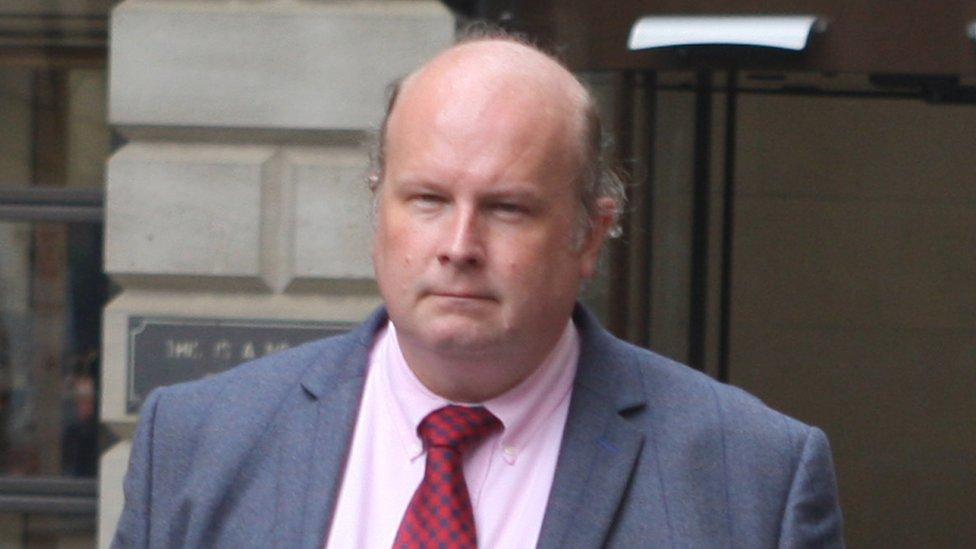My rapist told me 'all gay men are the same'
- Published
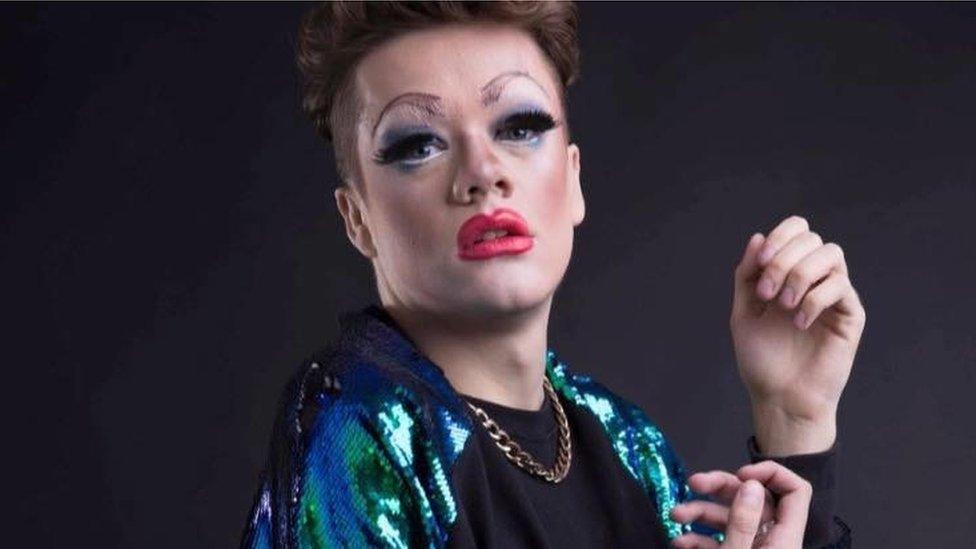
Jordy Deelight is a drag performer in Edinburgh
Drag artist Jordy Deelight stepped onto a stage for the very first time in 2015, wearing a colossal crimped wig and a dress he says was fit for Dolly Parton.
He was terrified.
The 24-year-old from Leith had long-harboured a flair for costume and theatre - as a child he would dress up and perform scenes from Sleeping Beauty and Cinderella.
But he was a student before he plucked up the courage to show his talents to a live audience at CC Blooms in Edinburgh.
As his popularity on the city's drag circuit quickly escalated, Jordy decided to use his platform to tell audiences about when he was raped.
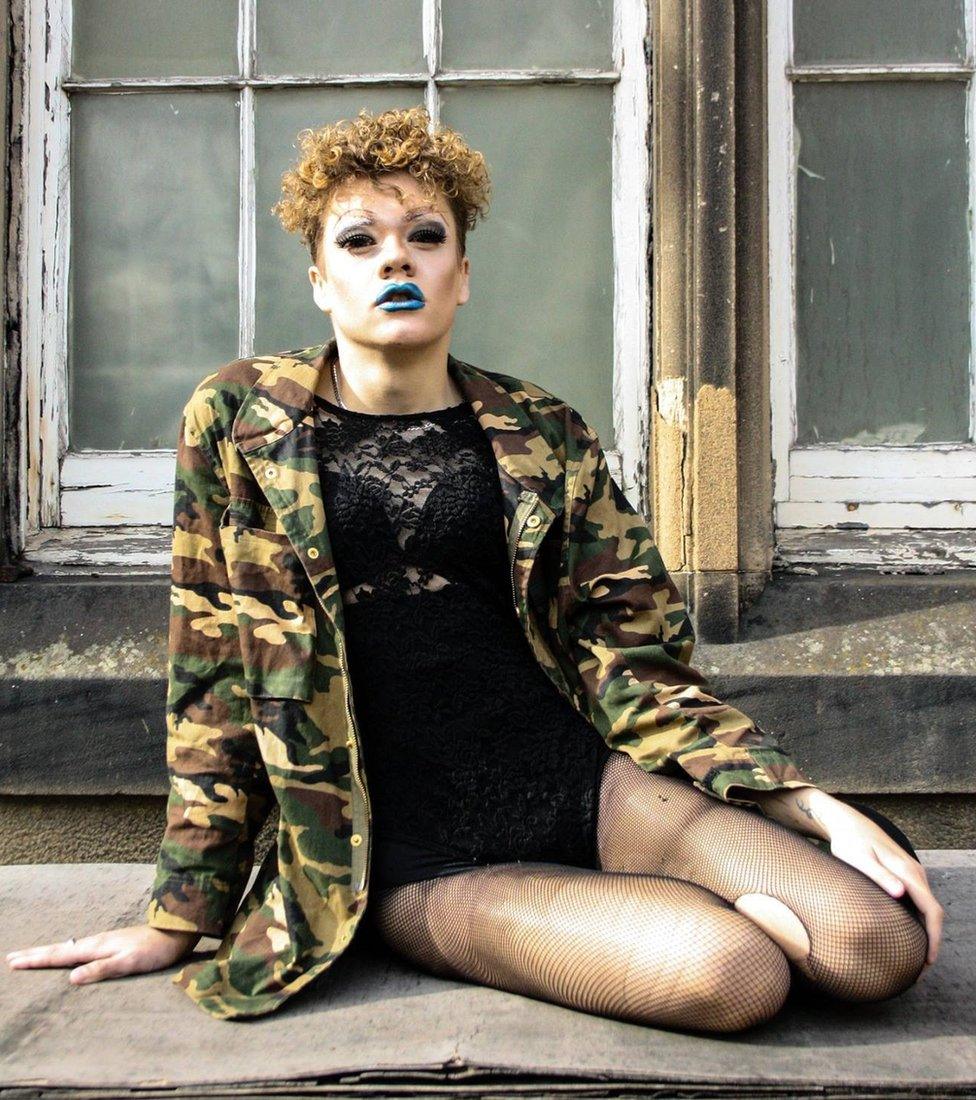
Jordy felt he could not speak to university officials or police about the attack
In 2013 Jordy was invited to a Fresher's party in student halls at the University of Edinburgh - at the time he was studying at Queen Margaret University and didn't know many people in the room.
"There was a man about the same age as me - he and I were the only people at the party who were openly LGBT," he said.
"I hadn't had a massive amount of experience as a gay man, I was quite shy - and this guy asked me to his room for a drink.
"We went round the corner to his flat and started fooling around, but then I said I didn't feel comfortable and I felt drunk."
'He was trying to make me say yes'
Jordy said they went to sleep, but some time later he woke up and realised the man was raping him.
He continued: "I said to him 'this isn't ok'. He eventually stopped and started shouting at me saying all gay men were the same.
"I just took that as a way of him trying to make me say yes because all gay men may have said no to him.
"I went home and burst into tears. I told a friend about it but then wrote it off - I didn't want to think about it.
"I wasn't told how consent works in the LGBT community and felt very much like all gay men are like that. Once I got more partners I realised what happened to me wasn't right."
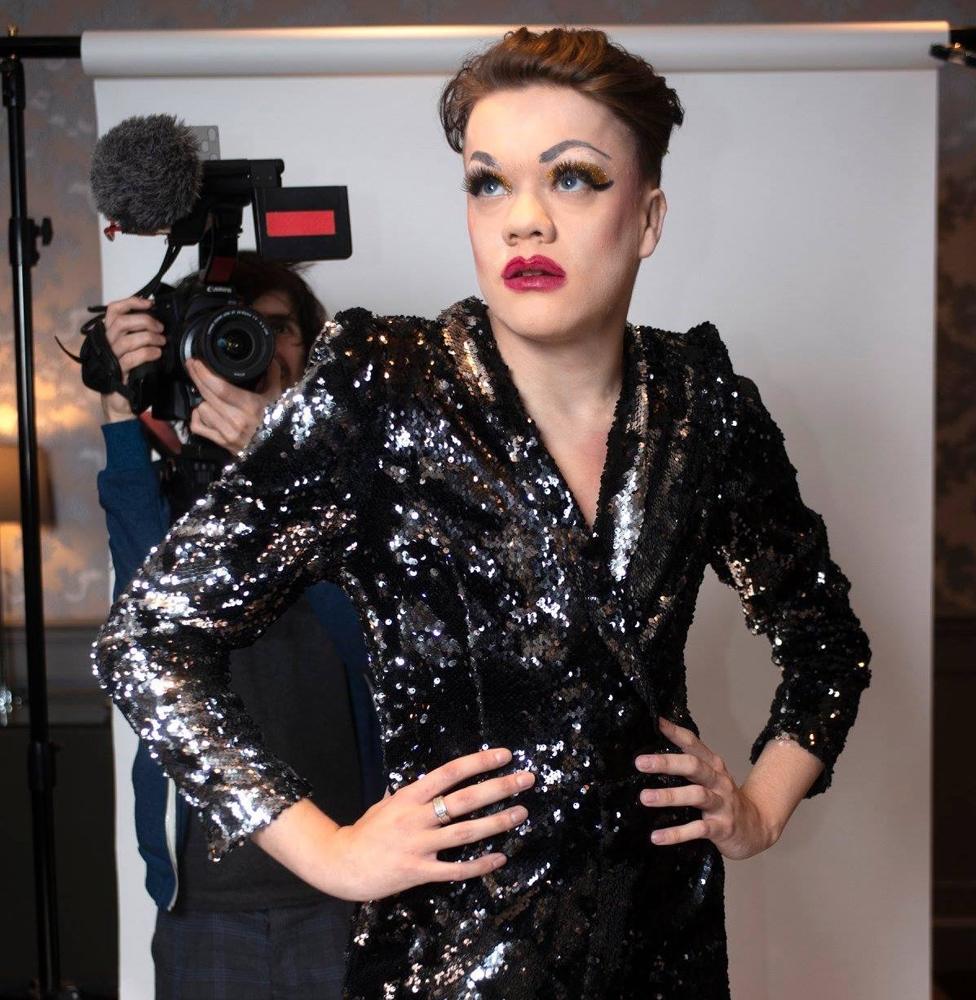
Because the attack did not happen at his own university, Jordy dismissed the idea of alerting any campus officials to the attack.
But he also said his lack of understanding on consent and experience in relationships put him off speaking to police.
Two years later Jordy created his drag persona - which the BBC has chosen to use in place of his surname.
The attack was not the reason he became a performer, but telling his story through drag was a way to separate himself from the trauma.
"People expect drag to be commercial and camp rather than about serious issues," he said.
'Make sure you know what consent is'
"I was going to counselling weekly because of it [the attack] and all these women were coming forward as part of the #MeToo movement.
"So I created a show about my experience and used it to liberate myself from what happened to me - that was the starting point of not being a victim and ignoring what happened."
On top of drag, DJing and teaching drama, Jordy is now a masters student at the University of Edinburgh.
He says it was nearly impossible to return to the university - the scene of his attack in 2013 - but he continues to manage his trauma with counselling and performance art.
He said: "University is a fantastic exciting time and Fresher's is one of those big moments where you meet some of your best friends.
"But make sure you know what consent is and make sure you've got a lot of support around you.
"You are never in the wrong by saying 'no'."

Attacks increasing at Scottish universities
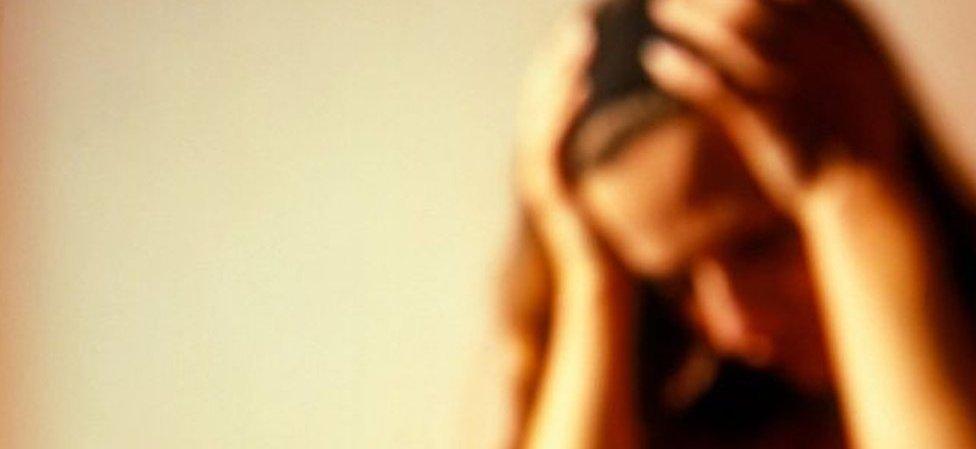
BBC Scotland's The Nine has found that reports of sexual assault and harassment at Scotland's 17 universities have nearly trebled over the last five years.
The total number of incidents - which were allegedly committed by a mixture of students and staff - rose from 14 in 2014/15 to 40 in 2018/19.
Experts say the #MeToo movement and the conviction of a series of high-profile predators has encouraged victims - past and present - to step forward.
But they also warn the data shows massive under-reporting of assaults by students and say universities must do more.
NUS Scotland research from 2012 showed that one in five students had been assaulted within their first week while 68% of students surveyed had been sexually assaulted at some point during their studies.
The organisation's Scottish executive officer Heather Innes said: "It is imperative that institutions have clear and accessible reporting procedures to allow students to come forward, offering specialist support and care throughout the process.
"NUS research has shown that, too often, victims are unaware of the reporting procedures of their institutions, reinforcing a culture of victim blaming and creating barriers to justice."
Committed to supporting victims
Police Scotland launched its #GetConsent campaign in August this year to highlight how sex without consent is rape, in a bid to prevent attacks.
A spokeswoman for the force said officers were working with universities to make sure victims have a "suitable route" to report sexual crimes.
She added: "We are committed to supporting victims of sexual crimes and it is vital that they feel confident about coming forward to police to report the crime, regardless of when it took place. Although reporting is increasing, we know that these types of crimes do still remain under-reported.
"Victims can be assured that we will thoroughly investigate all reports of sexual crime and strive to identify those responsible and bring them to justice. Our ultimate aim, however, is preventing rape and sexual crime from happening in the first place."
Jordy recently featured in the BBC documentary Jordy's 65 Reasons To Live.
- Published17 September 2019
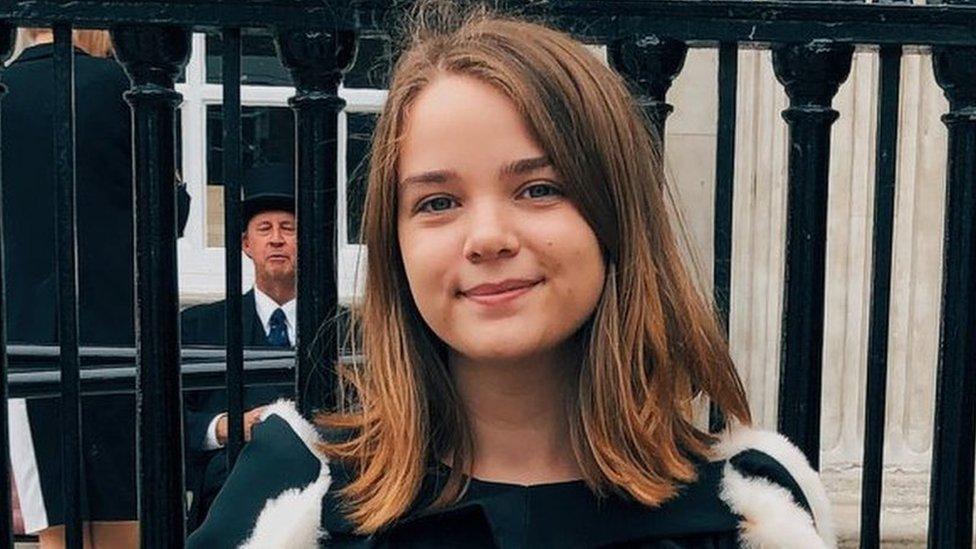
- Published26 September 2019
